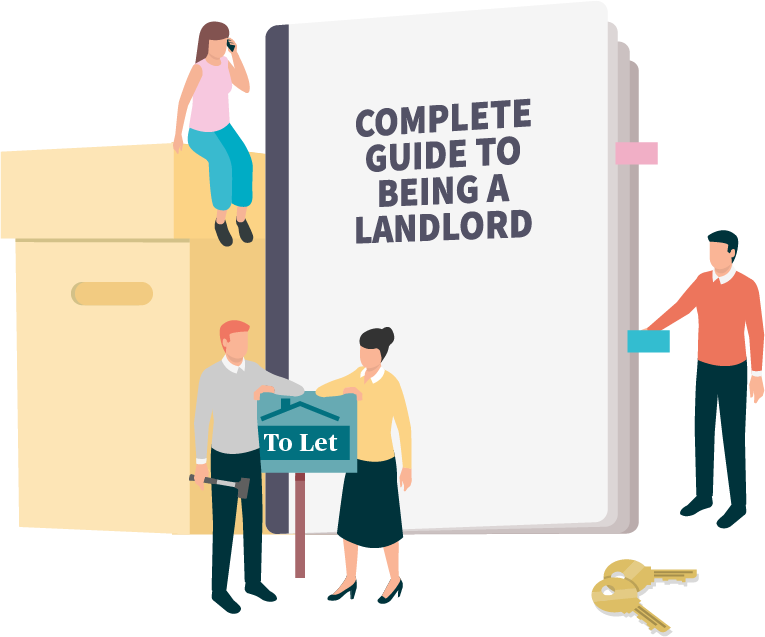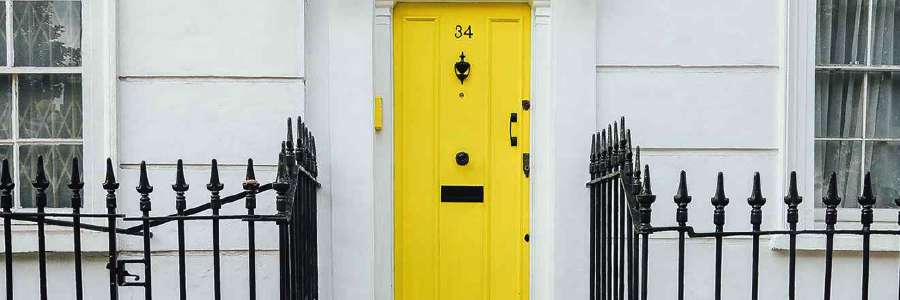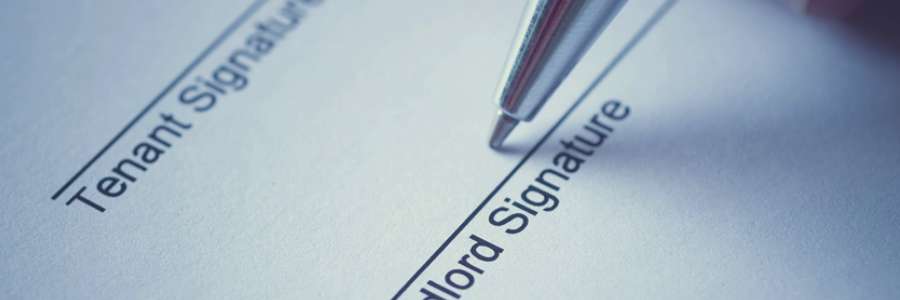Looking for residential landlord insurance?
The complete guide to being a landlord
Becoming a landlord is exciting, but how do you get started? Here’s everything you need to know.
14 May 2020

Introduction
In the UK, private renting is becoming the norm. The rental sector has more than doubled since 2001, rising from 2.3 million to a massive 5.4 million privately rented households in the UK.
And this trend is predicted to continue, with an additional 1.8 million households becoming private renters by 2025 and more than half of 20-39 year olds expected to be renting privately by 2025.
So with ‘Generation Rent’ on the rise, is it time you gave serious thought to becoming a landlord?
This guide is designed for anyone who's taking their first steps on the path towards becoming a landlord. Whether you're an accidental landlord, or someone who's always dreamed about a career in property, you'll find all the information you need to get started right here.
We'll take you through the process from start to finish, from sorting out the legal side of things to getting tenants settled in your property.
Ready to get started?
Why become a landlord?
If you're trying to decide whether to sell or rent out your property, there are a few things to consider.

Private rental prices have been growing steadily in Britain over the past few years – the Office of National Statistics (ONS) notes that rents have risen by 14.5% since 2011. Not only does this provide a nice passive income, it's also a clever way to protect your assets. Savings rates have dropped to their lowest rate in history, but in 2017, house prices across the UK rose by 5.8% on average.
Another reason is that it can be a great revenue stream. Last year there was an estimated 1.75 million private sector landlords in Britain, but demand continues to outstrip supply, and the rise of short-term renting options like Airbnb has reduced the amount of housing stock available to long-term tenants.
Being a landlord is a commitment, but it's one that you can easily manage in your spare time. Our guide will help you decide how to make the most of this opportunity.
Getting started
The first thing to think about is whether or not your property would work as a rental.

Consider your home's state of repair. If you've just inherited an old property, it might need some renovation work and a bit of TLC to bring it up to code before you can put it on the rental market. If you've left a property that you loved to move in with a partner, the property might be almost ready to rent out straightaway, providing it's up to code.
You should also try to work out if there's any rental demand in your area. It may surprise you, but it's estimated that one in five British families now rent rather than own and they're likely to be keener on big houses in the suburbs than studios in lively areas of the city. You can check rental listings on websites like Rightmove and Zoopla to see how fast they're shifting for a good idea of local demand.
The next thing to do is set yourself up as a business owner. You'll need to register for self-assessment with HMRC so that you don't get in trouble with the taxman. At this point in your journey, you might also want to chat to some experienced landlords for advice. They can help you with the next few decisions, such as whether you're going to be hands-on or hire a letting agency, or whether you're going to rent out your property with furniture or without it.
A few questions you might want to ask yourself before getting started:
Will I rent out my property furnished or unfurnished?
A furnished property may attract a higher rental value per month, but bear in mind that whatever furniture or appliances you leave in the property could be your responsibility to fix or replace when broken.
Will I allow pets?
Allowing pets could be a selling point for prospective tenants, but they could cause damage to the property or furniture too.
Will I allow tenants to smoke in the property?
Smoking is not only bad for your health, it’s also a fire hazard and could leave a lasting impact on your property and furniture.
Will I hire a letting agency?
A letting agency may be an extra expense, but they could manage a lot of the other considerations explained in this Guide on your behalf, which may be beneficial in the long run. Consider what’s best for you before making any decisions.
Get landlord insurance from just £177 a year*
Costs of being a landlord
Although rent will be coming in, you'll have a few outgoings as a landlord too. Some are monthly, while others are one-off costs.

Rental income should cover the majority of your costs, but it's important to have a contingency budget just in case things go wrong. For example, you may need to pay out for repairs, or your property may be empty for a month or two in between tenancies. Make sure you have enough money to cover the following expenses just in case:
Repairs
If something goes wrong or if something breaks in the property, in some cases it’s up to you to pay for the repairs. This could be costs for a plumber to fix a leak, or to replace a broken appliance. Remember to keep all receipts for repairs you've paid for, as these could be tax deductible.Mortgage repayments
If you don't own your property outright, you'll still need to pay your mortgage. Remember that mortgage tax relief is set to change over the next four years, with the eventual aim being that there’ll be a single allowance of 20% to claim across all tax bands.Insurance
While tenants usually take on the responsibility for most monthly bills like gas and electricity, you'll still be responsible for sorting out (and paying for) insurance. Take a look at our section on Legal cover and insurance for more information.Agency fees
Letting an agency handle your property means you don't have to be ‘on-call’ for tenants. It also takes away some of the admin work. They usually charge around 10 to 15% of the rent, another cost to consider.Solicitor's fees
It's a good idea to get your tenancy agreement looked over by a legal professional to ensure it's absolutely watertight. If you join a landlord association, you'll have access to solicitor-approved tenancy agreements as part of your membership fees.Bringing your property up to standard
You'll need to spend a bit of money getting your property up to code. This includes fire safety precautions, electrical upgrades and more. There are extra compliances to consider if it's going to be a House in Multiple Occupation (HMO), which is defined as a property with three or more unrelated people living in it. There are also refurbishment costs to consider, such as painting and decorating.Furniture
If you’ve decided to rent out your property as ‘furnished’, you might need to replace your old couches to ensure they're fire resistant (they should have the fire safety label attached). You'll also need budget to replace furniture that becomes damaged or unsafe as a result of everyday wear and tear.Energy performance certificate (EPC)
These can cost anywhere from £50 to £100 and are a legal requirement if you're renting or selling a property. Each one lasts for ten years, so you don't need to get a new one every time a tenancy ends.Membership of a Landlord Association
Although this is an optional consideration, there are lots of benefits to joining a landlord association, which we'll talk more about here. They charge anywhere from £50 to £184 per year, depending on which one you choose and which level of membership you go for.Rights and responsibilities
There are some legal safeguards in place to protect both you and your tenants. Understanding what they are is important.

Your responsibilities as a landlord
Your responsibilities are the things that you need to do to protect your property and to keep your tenants happy and secure.
Insurance
As the landlord, you'll be responsible for sorting out insurance to protect your property against accidental damage, such as fire and flooding. Your tenant will need to arrange their own contents insurance if they want to protect their possessions.
Appliance maintenance
If you choose to supply furniture and appliances, you'll need to keep them in good condition. This might mean replacing them or sending out a handyman to fix them. You'll also need to carry out the majority of repairs. This is probably a good thing – you don't want DIY-mad tenants potentially damaging your property. If you're using a letting agent, they'll handle this, but if you're going to be a hands-on landlord you'll need to make sure you’re easily and reliably accessible to your tenants.
Property standards
Another big responsibility is making sure the property is up to code, which you should do before the tenancy starts. This means things like fitting smoke alarms on every floor, as well as making sure there's a carbon monoxide alarm in any room that uses solid fuel (such as wood and coal). From 2018 this will also mean making sure your property meets minimum energy performance standards. There’s a lot to consider here, so visit the Getting your paperwork in place section for more details.
If you rent your property to a disabled person, you may be required to adapt it to your tenant's special needs under the 'duty to make reasonable adjustments' section of the 2010 Equality Act. See our ‘Protecting yourself (and them)’ section to find out more about this.
Deposits
Another responsibility is to look after the deposit your tenant paid by keeping it in a Tenancy Deposit Protection Scheme. If you choose to use a letting agent they’ll likely deal with this on your behalf, but if you’re going it alone, these different agencies handle this in different countries of the UK:
England and Wales
You'll also be in charge of ensuring that all of your paperwork (such as the EPC, Gas Safety Certificate, and tenancy agreement) is in order.
Paying rent
Landlords must inform their tenant when and how they need to pay their rent and how much it is. If the rent is paid weekly, landlord will need to give tenants a rent book or a similar document.
Increasing your rent
Before a landlord can increase their rent, the tenant must agree to it. Equally, the landlord can increase rent if:
- The tenant signs a new contract
- They have a rent review clause in their contract
- The landlord sends a section 13 notice of a rent increase (NB a section 13 notice can only be issued once a year)
The Homes (Fitness for Human Habitation) Act
As a landlord, it’s your responsibility to make sure the houses or flats you rent out are comfortable and safe for your tenants to live in. It’s not just a mark of a good landlord, it’s a legal requirement too. The Homes (Fitness for Human Habitation) Act gives tenants in England the power to take legal action against landlords who don’t take their responsibilities seriously. The courts decide whether a property is fit for human habitation and can seek exert advice if they think something’s not up to scratch.
To find out more about the Act and what you should be doing to make sure your rental property complies, read our article on the The Homes (Fitness for Human Habitation) act.
Your rights as a landlord
Although you own the property, whether outright or as the mortgage holder, you no longer have the right to simply walk in and out of it at your leisure. You need to give the tenants 24 hours’ notice before popping in, even if it’s to carry out essential repairs.
You have the right to have your rent paid. And in some circumstances and conditions, you have the right to request that the tenant leave the property. This all has to be done through the proper channels – see the ‘Ending a tenancy’ section to find how it works in your part of the UK.
If they break the contract before the term's up, you have the right to collect the rent for the term. You're also allowed to bring legal action if they don't pay.
If you're worried about handing your property over, including a 'break clause' in your tenancy agreement gives you and your tenant the right to end the contract at any time during the first six months.
Getting your paperwork in place
There are some documents you need before taking on your first tenant. Some will be passed onto the tenants themselves, and others will be for your own records.

Print off a copy of our Landlord's Checklist to help you work out if you've got everything you need. Rules and regulations differ across the United Kingdom.
Entire UK
Energy performance certificate (EPC)
An accredited Domestic Energy Assessor (DEA) will carry out the survey and provide you with a certificate showing how energy efficient your property is. The ratings run from A (most efficient) to G (least efficient), and most British homes sit around the D or E mark. If you don't provide an EPC you could be fined up to £200. From April 2018, you legally won't be able to rent out properties with a rating lower than E, and could be fined up to £4000 if you do. Landlords must provide tenants with a copy of the EPC to give them an idea of how expensive the property will be to maintain. If your flat or house is in Scotland, you need to display the EPC somewhere in your property (most people pop it up next to the boiler).Tenancy agreement
This is the most important document of all – it's the contract between you and your tenant. This sets out the legal terms and conditions that you expect your tenant to follow, such as when they should pay their rent and when the tenancy will end. It's best to download a template from a landlord association and consult a solicitor for advice.Inventory
If the flat is furnished, keep a list of everything that you've provided for your tenant. It's also wise to take a note of the condition or to take photos for reference. It can be a bit boring going round the house writing things down (four forks, two slightly tarnished) but at the end of the tenancy it will help you to work out if you need to keep back any of your tenant's deposit to pay for damaged or stolen goods.Gas certificate
If the property has any gas appliances, you'll need to arrange an annual visit by a Gas Safe Engineer. This certificate should be provided to your tenants at the start of their tenancy and after each inspection.Written permission from your mortgage lender
Most mortgage lenders give you the loan on the basis that you'll be living in the property, and you could get in trouble with them if you start renting the property out without their knowledge. To keep things above board, you'll need to send your mortgage lender a 'consent to rent' application. They may increase your mortgage repayments or charge you an admin fee, but in most cases your mortgage terms will stay the same. There are also special buy-to-let mortgages out there specifically for landlords. Over the long term you may need to consider moving to one of these mortgages, as your consent to rent may only be valid for a few years at a time.Leasehold property
It’s also important to check the wording on the lease agreement if you have a leasehold property because most leaseholds don’t allow subletting. If your agreement does have a subletting restriction, you need to write to your landlord to get their permission.Shared ownership
If your property was purchased as part of a shared ownership scheme, you should check with the other parties involved and find out what the agreement for letting is.HMO licence
If you're renting to three or more unrelated people, you'll need to apply for an HMO licence. In England and Wales, as well as Scotland, it's the responsibility of your local council, so you may or may not be able to apply online. In Northern Ireland, you can apply online through the NIHE. Licences last for five years in England, Wales and Northern Ireland and three years in Scotland. Remember to renew them before they run out.Legionella test certificate
While it’s not a legal requirement to provide a Legionella water sample test certificate, landlords still need to protect their tenants. Landlords could face prosecution if their tenant contracts Legionnaire’s disease from the property’s water system. That’s why landlords need to complete a Legionella risk assessment and take every measure to minimise the risks.England
Literature
Landlords in England need to give tenants a copy of the government's 'How to Rent' guide. This outlines your tenants' rights and responsibilities, as well as what to expect from their landlord. You can't serve a Section 21 eviction notice at the end of the tenancy if you haven't provided a copy of the guide at the start. You might want to consider sending an email copy so you have a record.Right to Rent
You'll need to check that all tenants aged 18 and over are legally allowed to live in Britain. You have to do this for every new tenant, even if you assume they're British. You'll need to keep a photocopy of the documents that prove their rights, for example a birth certificate and council tax bill or their biometric residence permit.Wales
Registration
You need to register with Rent Smart Wales. If you're letting through an agent, they must be licensed. If you're letting privately, you need to obtain a licence as a ‘self-managing landlord’ by demonstrating that you have undergone suitable training, as well as signing a ‘fit and proper’ declaration. It’ll then be valid for five years.Scotland
Literature
You need to give tenants the 'Tenant Information Pack', which is similar to England's ‘How to Rent’ guide. You can be fined up to £500 for not providing this. It’s maybe a good idea for your records to send a second copy by email.Periodic Electrical Inspection Report
You must have all of your electrical items inspected once every five years if you're renting your property out through what is commonly known as PAT testing. You also need to have a new inspection carried out at the beginning of every new tenancy.Registration
All landlords in Scotland are obliged to join the landlord register. This involves a few checks to make sure you're a ‘fit and proper’ person (for example, that you haven't been convicted for any violent crimes or have any anti-social behaviour orders). The licence is valid for up to three years. Renting without a licence could result in a fine of up to £50,000, and a ban from letting out properties for up to five years.Northern Ireland
Literature
You must provide a ‘rent book’, which contains your contact details and those of any agents, your tenant’s name, the rental property’s address and its capital value, the amount of rent and additional rates payable and the tenancy commencement date. You also have to send your tenant a written statement of the tenancy terms within 28 days of the contract beginning.Registration
You must be registered with the Landlord Registration Scheme in Northern Ireland before letting a property. You will receive a unique registration number, which will need renewal every three years.Setting fees and rent
Choosing how much to charge your tenants should be a well-thought out process based on your costs and the local market.

Do your sums
Start by sitting down with a pen and paper, writing down all of the costs you're going to have as a landlord. For annual charges, divide them by 12. This should give you a monthly breakdown showing the bare minimum you should charge for renting the property. Of course, you'll want to make a bit of profit. The amount you can go over and above the bare minimum will depend on the local marketplace.
Do your research
Browse letting websites for similar properties in your local area and see what people are charging. Check back regularly – you'll soon know if someone's being unrealistic about what they can charge, as their property will be languishing while others are snapped up.
Some websites have calculators and tools to make things easier. For example, Home.co.uk has a list of current market rents by town and property type. Zoopla also shows an estimated monthly rental value when you use its free online valuation tool.
Speaking to other local landlords will also give you a good idea about the local market, and they'll be able to offer you pricing tips too.
Be specific to your property
When you're looking at the rental prices of other properties in the area, think about how they compare to your property. If yours is recently refurbished, has an extra bedroom, or appealing features like wooden floors, you can afford to ask for a bit extra. This goes both ways, so if your property isn't in good decorative condition, you may need to lower your expectations slightly.
Landlord support
You don't have to go it alone when you become a landlord. There's plenty of help out there if you need it, usually through letting agencies and landlord associations.

Letting agencies
Letting agencies handle the day-to-day management of your property for you. They'll advertise your property, find and vet tenants and be on call for repairs should anything go wrong. They'll also handle inspections for you and make sure that any documents are legally compliant. There’s usually a fee of 10 to 15% of your monthly rental price for these services.
Using a letting agent is a good idea if you'd prefer to be more hands-off, but it can be frustrating when you want more control. For example, letting agents may send a tradesperson to do a small job that you could do yourself more cheaply. You'll then have to foot the bill. There can also be communication issues if you use a middleman, which can damage your relationship with your tenants.
The decision to use a letting agent or not will be a personal one, based on your style. However, they can be very useful in the beginning, as they'll help with a lot of the complex details.
Online estate agent vs High street
When it comes to choosing between a high street or online estate agent, there are advantages and disadvantages to both. That’s why it’s so important to do your own research to find the right option for you.
Online estate agents
Advantages
- Cheaper: Less overheads means they’re often cheaper than their high street equivalents.
- 24/7 support: With most major online estate agents, you can log in to your account to manage viewings or check any interest whenever it suits you.
Disadvantages
- Ad-ons: For some online estate agents, the price you see isn’t always the price you’ll pay. With many ‘added extras’ like accompanied viewings, your end bill could be higher than you’d originally planned.
- Upfront payment: While most high street estate agents take a percentage of the sale as commission, online estate agents usually require an upfront payment.
High street estate agents
Advantages
- Personal service and local knowledge: Many people find it reassuring to walk into a high street office and speak to someone face-to-face. Employees in high street estate agents also usually have extensive knowledge of the area itself and the local property market.
- Accompanied viewings: Conducting your own property viewings can be a daunting, especially if you’re new to property letting. Accompanied viewings are usually included as standard with high street agents.
Disadvantages
- More expensive: With greater overheads, high street estate agents can be more expensive than their online counterparts. This isn’t always the case which is why it’s important to shop around.
- Not 24/7: Even though many are now open at weekends, high street estate agents still tend to stick to more traditional working hours.
Landlord associations
Landlord associations charge a membership fee to join. You need to meet their professional standards to become a member, as they often offer accreditation. This helps to build your reputation and could even make you more attractive to prospective tenants.
Other perks can include:
- a library of lawyer-approved templates for tenancy agreements
- access to online forums and networking events
- advice from other professionals
- exclusive training events
- discounts on trade magazines
The largest UK-wide organisation is the National Landlords Association (NLA), but there are some groups that operate exclusively in Scotland, Northern Ireland, and England and Wales too.
You can learn more about joining an association on the Business Guardian Angel blog.
Finding the right tenant
Now your property's ready and the paperwork’s in order, it's time for the most important bit: finding someone to live there.

Choosing a great tenant is a combination of people skills and staying on the right side of the law. Here's everything you need to consider when picking someone to move in.
Advertising
Staging
Advertising your property for rental is a bit like getting it ready for a sale. It should look as neutral as possible, so remove any statement wallpaper and invest in some magnolia paint. What you might love, somebody else might be put off by, so try to leave your feelings at the door. De-clutter and take away any personal possessions. If you're letting unfurnished, you may want to remove the furniture so nobody gets the wrong idea.
Photography
Prospective tenants will first judge your property on the photographs, so give it a really good clean and tidy before taking any. A professional camera will get better results than snapping with your smartphone. If you're using a letting agent, they may have a photographer on their staff.
Sunny days are the best for taking photographs, but flick your lights on anyway so that there's less glare on the images. Use the grid on the screen to make sure your images are nice and straight and try to snap from the corner of the room to get more of the room into the frame. If you have a wide-angle lens, that's even better.
Where to advertise
If you're using a letting agent, they'll probably advertise on the big housing websites like Rightmove and Zoopla. These sites don't work with private landlords as they don't want to fall foul of the Property Misdescriptions Act 1991. Online letting agents also advertise through these portals – and can be cost-effective.
Other options are local press, smaller portals like FindaFlat, message boards like Gumtree and social media like Facebook and Twitter. On Facebook, it's worth searching for groups targeted towards people living in your local area. Be careful not to ‘spam’ people by posting the same advert constantly.
Targeting
When you're choosing where to advertise, think about what kind of tenant you want to rent to. You've also got to consider whether your property makes sense to the people you want. Young professionals will likely be looking near the city centre, or on a good commute link, while families will typically want a few bedrooms and a garden.
Younger renters might be happy to look at properties they find on Facebook; if you post in a group for your local university you might get more interest. Note that some landlord insurance policies don't cover properties rented out to students, so double-check your small print.
Showing them around
Once your advert goes live, people will want to come and see your property. You can either hold an 'open house' where people swing by between set hours, or arrange an appointment on a one-to-one basis.
Before the viewers arrive, give the place one last tidy up and make sure everything is spick and span. Show them around the property, taking time to explain any special features. Let them explore on their own, and tell them where you'll be if they want to ask any questions.
If you're hosting an open house, you may not have time to speak to everyone individually. If it's a one-to-one viewing, take time at the end to sit down with them for a chat to get an idea of whether they would make a good tenant and answer any questions they may have.
Protecting yourself (and them)
The Equality Act 2010 forbids unlawful discrimination, including refusing rental based on a protected characteristic. This includes disability, race, religion, gender reassignment, sex and sexuality.
In order to avoid discrimination, you may be required by a disabled tenant to make a few adjustments. For example, if the tenancy agreement includes one parking space, you may need to update it to include two spaces. If they're blind, they may ask for an audio version of the tenancy agreement. You're not required by law to make any changes that will irreversibly change the structure of your home, like widening walls or removing steps, but you may be asked to install a walk-in shower or a temporary ramp.
Background checks are important to ensure you're renting to a reputable person who will be able to pay on time. The National Landlords Association offers comprehensive and express tenant checks. You'll want to look at:
- credit history
- current debts
- evictions
- criminal records
- public records (eg if they've been sued for child support or unpaid rent)
You should also get in touch with your prospective tenant's employer and previous landlord for a character reference. They'll be able to raise any red flags to you.
Asking a few simple questions, such as the ones below, on the tenancy application form can also help you to understand a person's character and lifestyle:
- Financial information – how much they earn, the balance of their bank accounts, if they have savings, outstanding debt on their credit cards, etc.
- Lifestyle – if they have any pets, if they smoke and what kind of hours they keep
- Character checks – contact details for current and previous employers and landlords
If you're renting in England, you'll also need to carry out the right to rent checks.
We've got some more information on finding the right tenant on our Business Guardian Angel blog.
Get landlord insurance from just £177 a year*
Your first tenant
You've run the background checks and sat down for an interview; now it's time to move your first tenant into your property.

Things to do before your tenant moves in
Run through our Landlord's Checklist to make sure everything is in order.
Health and safety checks
Make sure you perform all the necessary safety checks, such as making sure your fire alarms are all working. Get your electrical and gas safety checks organised if you haven't already.
Risk assessment
Look for any areas that might need repairing, like:
- draughty windows
- leaky taps
- loose plug sockets
- tripping hazards
- holes in the wall
- plumbing – switch on the heating and feel every radiator for cold spots; flush the toilet; check that the shower is cycling through its full range of temperatures
- damp – check for mould in the bathroom and kitchen, and make sure there's enough ventilation to prevent this becoming a problem
Paperwork
You'll need to read through the tenancy agreement together with your tenant. There are two main types of tenancy agreement: assured shorthold tenancy (called ‘short assured tenancy’ in Scotland and ‘fixed-term tenancy’ in Northern Ireland), and assured tenancy (‘protected tenancy’ in Northern Ireland).
The assured shorthold tenancy (AST) is the most popular. It gives you the right to take the property back once the initial term of the agreement ends (usually around 6 months to a year). You'll still need to give your tenants two months’ notice if you want to repossess the property.
In Scotland, you'll need to give your tenant an AT5 form if you want to start a short assured tenancy.
With an assured tenancy, your tenant will have more protection against eviction – you won't be able to ask them to leave unless they've done something wrong, like failing to pay rent.
Once you and your tenant are happy with the agreement, they'll sign the lease. Agree on a date for them to move in.
What to do on moving-in day
On the morning of the move, give the place one last clean. Once they arrive to pick up the keys, walk them through the property and give them a copy of the inventory. You should go through it together, making sure everything’s in place and in the condition described. You should both then sign and date every page. This will reduce the chance of disagreements when the tenant moves out.
Before you leave, give your tenant your phone number and email address so that they can easily contact you. Make sure they know your boundaries. For example, if you’re not available after 8pm, or if you would rather be contacted by email while you're at work, let them know. Make them aware that these are flexible in the case of an emergency – and exactly what counts as an emergency.
Dealing with tenant disputes
Nobody wants to argue with their tenants, but problems do happen. The key to solving issues is usually communication, so try arranging a time to chat about it over a cup of tea or coffee.
Your tenant might be frustrated because they feel that you're not living up to your responsibilities as a landlord. Bring along copies of the tenancy agreement and the How to Rent booklet/Tenant Information Pack so that they understand what is and isn't your job.
It's important to stay calm, even if they become aggravated. Using strong language or raising your voice could be construed as harassment and could land you in hot water. If you feel your temper starting to boil over, calmly walk away.
If things get very serious and you think it could end up in court, it’s worth trying alternative dispute resolution (ADR). This means either using professional mediators or arbitration, which is usually a little bit more formal. Both involve an impartial third party to help you come to an agreement.
Find out more about dealing with demanding tenants on the Business Guardian Angel blog.
How to keep your tenants happy
If you've found yourself some good tenants, your goal should be keeping them happy so that they don't want to leave once their lease is up. Retaining them means you don't need to go through the advertising and screening process again. Some ways to keep your tenants happy can include:
- responding to messages right away
- being proactive with repairs
- giving tenants an ‘essentials’ kit when they move in
- offering some leeway if possible, like letting them repaint their room or adopt a pet
- being friendly – even just wishing them happy birthday
Check out our five reasons tenants give for moving out for further advice on keeping renters happy.
Legal cover and insurance
No matter how careful you are about background checks and risk assessment, things can still go wrong.

It's your responsibility to insure the property against damage like fire and flood. While you could get a regular home insurance policy, it may not cover you if you rent your property out to tenants. A landlord insurance policy is a better option as it's more tailored to your needs. Extra protection you get with an AXA landlord insurance policy includes:
- liability cover – in case a tenant becomes injured in your property and tries to sue you
- alternative accommodation cover – if your property becomes damaged, a landlord insurance policy will pay for tenants’ accommodation while repairs are carried out
- cover for up to ten properties – perfect if you decide to become a property mogul
The policy should also include standard home insurance aspects such as buildings insurance, cable and underground pipe cover and cover against subsidence and ground slip.
There are some optional extras you can add onto a landlord insurance policy, too:
- accidental damage cover – this covers you if Bordeaux’s accidentally spilt on your beige carpet
- loss of rental income – in some instances you could claim back loss of rent if your property can’t be lived in as a result of fire or other damage
- contents cover – this is a good idea if you're renting the property with furniture
- employer's liability cover – covering any cleaners or other staff who may get injured in your property
- terrorism cover
Landlord insurance policies are tax deductible too, so it won't eat into your profits.
Taxes
A lot of new changes have taken place, making tax for landlords a lot more complicated.

You can read more about these changes in our Landlord Tax Explained guide. For beginner landlords, we're going to chat about the basics.
Registering for self-assessment
You'll need to get in touch with HMRC if you're earning up to £2,500 on your property each year. If you're making £2,500 to £9,999 per year after allowable expenses (or more than £10,000 before expenses), you'll need to fill in a tax return. You need to register by the 5th October of the tax year after you started to make money from property. Tax years run from April to April.
You can register and fill in your form online and it's a fairly pain-free experience. The deadline for submitting a tax return online is the 31st January, but for your first tax return it's always best to do it earlier. This gives you the chance to get things sorted out if you have any issues accessing your account. Remember you're filling in the information for the previous year, so a tax return filed in January 2018 would cover the period from April 2016 to April 2017.
If you're not keen on doing it yourself, you can hire an accountant to handle it for you.
Tax deductible costs
There are some costs associated with running a property that HMRC allow you to deduct from your profits, so that you pay less tax. These are known as ‘allowable expenses’. For example, if you made £12,000 and your letting agent took £1,200, you would only pay tax on the £10,800.
Some allowable expenses for landlords are:
- Letting agent fees
- Legal fees
- Accountant fees
- Buildings and contents insurance
- Maintenance and repair costs
- Utility bills
- Cleaning services
- Direct costs such as stationery, phone calls, and advertising
Tax relief is also available when you replace domestic items (such as beds) for the sole use of your tenants. Improvements to the property, like a full bathroom refurbishment, aren't tax deductible.
Stamp duty changes
One of the biggest changes to landlord tax in recent years has been the increase in stamp duty land tax (SDLT) for second and subsequent homes. If you want to expand your property empire, it's important to know a little bit about the impact. You can read more about SDLT changes on our Business Guardian Angel blog.
Capital Gains Tax
Capital Gains Tax is a tax you pay on any profits you make when you sell a second home or buy-to-let property. The tax only applies to the gains (profit) you make when you sell something you own, and you only pay it on the profit you make above the tax-free threshold. The ‘gain’ is the difference between the price you paid for something when you bought it and the price you’re selling it for. For example, if a landlord sells a rental property, they’ll pay tax on the difference between the buying and selling price. Or in other words, they’ll pay tax on any profits they make.
Read our online guide to Capital Gains Tax for landlords here.
Ending a tenancy
All things come to an end at some point, and asking a tenant to leave your property is part and parcel of being a landlord.

How to give notice
At some point, it may become necessary to ask a tenant to leave the property. If this happens, you'll need to serve them with a notice. The type of notice will depend on why you're evicting your tenant.
England and Wales
A Section 21 notice asks tenants to leave your property after the initial fixed-term rental period ends. It can only be served to short assured tenants. You'll need to give them at least two months’ notice so that they have time to find a new property and get their affairs in order. To get proceedings started, you’ll have to fill in government form 6a.
If your tenants aren’t meeting their obligations, you can serve a Section 8 notice. This gives tenants two weeks or two months to leave the property, regardless of whether the fixed term has ended or not. To serve Section 8, you need to fill in form 3, including giving the full text of the grounds for eviction under Schedule 2 of the Housing Act 1988. For most landlords, the grounds will generally be two months of late or unpaid rent or damaged property.
Scotland
In Scotland, you need to give your tenants a Section 33 notice and a Notice to Quit. The Notice to Quit is a letter telling your tenants that you're evicting them, how much notice they're getting, that you'll get a court order if they don't go, and where they can find independent advice about the notice. For tenancies lasting six months or longer, the notice period should be 40 days. For tenancies on a month-to-month basis after the original period has ended, the notice period will be 28 days. You need to give two months’ notice for Section 33, but it's usually best to hand over both documents at the same time.
If they’ve not met their responsibilities in the tenancy agreement, you’ll need to serve a Notice to Quit and a Section 19 notice, normally called an AT6 form. This details the reason(s) for asking them to leave early and must be tied to one of the 17 grounds for possession in Schedule 5 of the Housing (Scotland) Act 1988.
Northern Ireland
If you’re in Northern Ireland, you must write a Notice to Quit letter to your tenant. Make sure you explicitly specify the date when they should leave. There are three different minimum notice periods. If they’ve been living there for less than five years, they must have 28 days’ notice; for five to ten years, it must be at least eight weeks; and for more than ten years, it must be 12 weeks.
You can’t end a fixed-term tenancy early if no one’s done anything wrong. Likewise, a protected tenant can live in the property for their whole life unless they break the contract terms.
If they have done something wrong, the same principles apply. You’ll have to write a Notice to Quit letter explaining when they need to leave by, but this time you must also include the way in which they’ve breached the tenancy.
What to do if there’s an issue in ending the tenancy
In the majority of cases, your tenants will probably leave at the end of the notice period as expected, but in some cases, it might not be so straightforward. After all, asking someone to leave their home is a sensitive issue. If this happens, it's always best to seek legal advice to make sure the situation is handled fairly and legally.
England and Wales
You need to apply to the court for a standard possession order. If you've decided not to go after any of the money that the tenants owe you, you can apply for an accelerated possession order instead. The next step is a warrant for possession. This is the worst case scenario and means getting the bailiffs involved.
Scotland
If your tenants haven't gone, you'll need to go through the courts to evict them. You'll have to tell them beforehand that you're doing this in an AT6 form, as a ‘notice of intention to raise proceedings’. You'll need to get an eviction order before you're able to force your tenants to leave.
Northern Ireland
You’ll need to satisfy the courts that you’ve followed the legal processes to resolve the situation. Once this is done, the Chancery Master (property judge) will likely serve an ‘outright possession order’, where your tenant must leave. If they still don’t go, you’ll have to apply to the Enforcement of Judgements Office for an officer to remove them – you can’t use bailiffs in Northern Ireland.
In all of these cases, if you’re communicating by email, make sure you get a response so you have proof of receipt.
So what next?
By now, you should have a firm understanding of what it takes to set yourself up as a landlord, so what are you waiting for?

Taking your first steps towards becoming a residential landlord is always exciting, but we know that the hard work is just beginning. That’s why we want to help you at every stage of your landlord journey.
For even more landlord help and information, whether you’re just starting out or you’ve been a landlord for years, head over to our Landlord Advice hub or keep reading using the links below:
And for more information on protecting your investment, find out more about residential landlord insurance from AXA.
Useful links
Check back here for further reading on specific areas, or to find the right place to contact if you have any issues.

General legal requirements and advice
England
Wales
Scotland
Northern Ireland
Starting out as a landlord
New landlords
Registration and licensing
England
- Registration - Landlord registration not required
- Licensing - HMO licence application
Wales
- Registration - Rent Smart Wales landlord registration
- Licensing - HMO licence application
Scotland
- Registration - Landlord Registration application
- Licensing - HMO licence application
Northern Ireland
- Registration - NI Direct landlord registration
- Licensing - HMO licence application
Deposit Protection Schemes
England and Wales
Scotland
Northern Ireland
Tax changes 2017-2021
- Gov.uk – Changes to tax relief for landlords
- AXA – Tax changes for landlords
Dealing with tenants
Get landlord insurance from just £177 a year*
We understand that being a landlord means spending your day juggling tenant issues, a day job, and everyday life. Get AXA landlord insurance to get the tailorable cover you need to keep the plates spinning.
- Buildings insurance to repair or rebuild your property following a loss
- Property owners’ liability cover (up to £10 million)
- Cover to re-house your tenants in alternative accommodation
- Cover for up to 10 properties in one policy
- 0% interest on instalments when you choose to pay monthly
*10% of our customers paid this or less between January and March 2025.